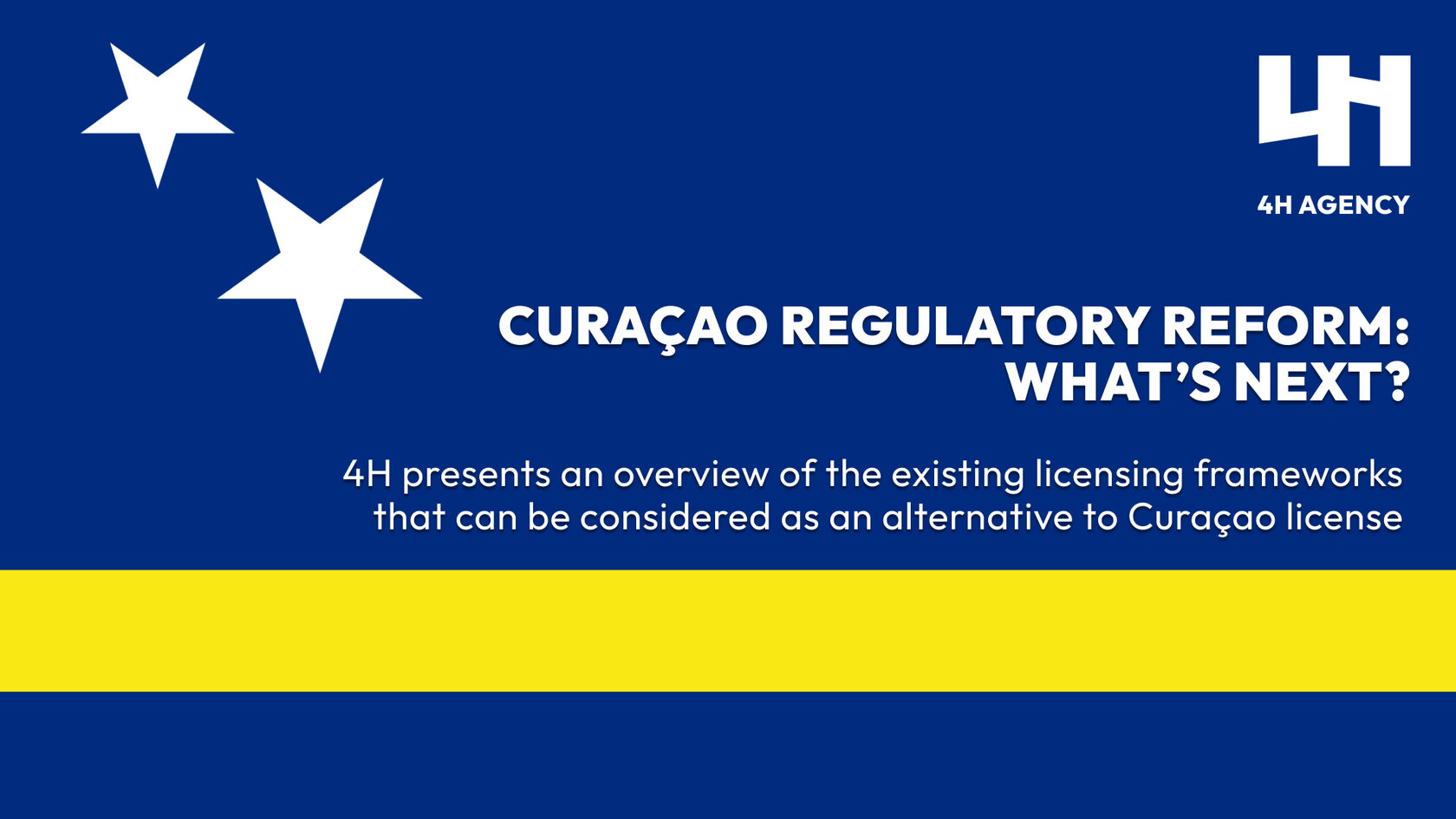CURACAO GAMBLING REFORM: WHAT’S NEXT?
The ongoing discussion and process of the large-scale reform of the Curacao license have been one of the hot topics in the industry this year.
It is too early to make any definitive conclusions on the future Curacao licensing framework, as draft regulations are yet to be available for the public. However, from what is known – as of today Curacao Gaming Control Board published licensing conditions (which are seemed to be not in the final form as new regulations are yet to enter into force) and according to its website Curacao Gaming Control Board will start to accept applications from 15 November 2023.
In the meanwhile, Curacao authorities established a transitional period when operators would be able to obtain either sublicense as per the current regulatory regime (which is still in force) or direct licenses from the Curacao Gaming Control Board under the framework of the recently established transitional regime.
Being an Agency specializing in everything about the expansion of the gambling brands, we understand that the industry is now going through the last bits of the period that will be later known as “before Curacao reform”; and since we like to be prepared for anything that future brings to us, we have prepared this high-level overview of the existing licensing frameworks that can be considered as an alternative to Curacao license.
The alternatives that we have chosen for this overview include:
In this overview, we gathered general information in relation to the following aspects of gambling operations:
This overview will be useful for anyone in the industry with its operations based on the Curacao licensing framework, as we have strived to provide an overview of the critical elements of the alternative frameworks that are intended to at least give an initial understanding of the avenues that might be considered.
Follow the link below to read the full overview:
Link to the full document
The ongoing discussion and process of the large-scale reform of the Curacao license have been one of the hot topics in the industry this year.
It is too early to make any definitive conclusions on the future Curacao licensing framework, as draft regulations are yet to be available for the public. However, from what is known – as of today Curacao Gaming Control Board published licensing conditions (which are seemed to be not in the final form as new regulations are yet to enter into force) and according to its website Curacao Gaming Control Board will start to accept applications from 15 November 2023.
In the meanwhile, Curacao authorities established a transitional period when operators would be able to obtain either sublicense as per the current regulatory regime (which is still in force) or direct licenses from the Curacao Gaming Control Board under the framework of the recently established transitional regime.
Being an Agency specializing in everything about the expansion of the gambling brands, we understand that the industry is now going through the last bits of the period that will be later known as “before Curacao reform”; and since we like to be prepared for anything that future brings to us, we have prepared this high-level overview of the existing licensing frameworks that can be considered as an alternative to Curacao license.
The alternatives that we have chosen for this overview include:
- Isle of Man (the “IoM”);
- Philippines;
- Malta;
- Kahnawake Indian Reserve No. 14.
In this overview, we gathered general information in relation to the following aspects of gambling operations:
- available verticals and gambling license costs;
- required charter capital;
- company requirements;
- financial requirements for the applicant (e.g., bank guarantee);
- approximate term for license obtaining as per 4H Agency experience;
- PSPs onboarding attitude;
- requirements for servers / data processing location;
- requirements for certification (e.g., games, machines, platforms, etc.);
- gaming tax;
- income tax (in the jurisdiction);
- income tax (out of jurisdiction);
- prohibited jurisdiction for licensees.
This overview will be useful for anyone in the industry with its operations based on the Curacao licensing framework, as we have strived to provide an overview of the critical elements of the alternative frameworks that are intended to at least give an initial understanding of the avenues that might be considered.
Follow the link below to read the full overview:
Link to the full document



